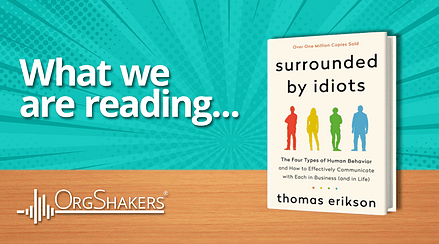Menu

Tackling Workplace Procrastination: A Strategic Guide for HR Leaders
In today’s evolving work environment – marked by hybrid models, remote flexibility, and increasing mental health awareness – employee procrastination has emerged as a critical challenge for HR professionals.
While occasional delays are natural, chronic procrastination can significantly hinder productivity, morale, and organizational performance.
Understanding its root causes and implementing targeted interventions is essential for fostering a high-performing, psychologically safe workplace.
Understanding the Psychology Behind Procrastination
Procrastination is more than a time management issue; it is a complex psychological behavior rooted in emotional regulation and self-control.
Neuroscience reveals that procrastination stems from a conflict between the brain’s limbic system, which seeks immediate gratification, and the prefrontal cortex, responsible for planning and decision-making. When stress or anxiety overwhelms an individual, the limbic system often wins, leading to avoidance behaviors.
Recent research underscores that procrastination is frequently linked to psychological inflexibility – the inability to accept and manage negative emotions.
A 2024 study from the University of Helsinki found that interventions aimed at increasing psychological flexibility, such as Acceptance and Commitment Therapy (ACT), significantly reduced procrastination when combined with time management training. This dual approach helps individuals acknowledge discomfort without avoidance, enabling them to act in alignment with long-term goals.
The Organizational Impact of Procrastination
Procrastination in the workplace manifests in missed deadlines, reduced output quality, and disrupted team dynamics. A 2024 study published in the IOSR Journal of Economics and Finance found that procrastination is often driven by anxiety, unclear goals, and environmental distractions. These factors not only diminish individual performance but also affect team cohesion and project timelines.
Chronic procrastination can lead to increased stress, burnout, and even higher turnover rates. Moreover, the economic cost of procrastination is substantial. Delayed tasks can cascade into broader inefficiencies, reducing profitability and innovation. Employees who frequently procrastinate may also miss out on professional development opportunities, further limiting organizational growth.
Strategic Approaches to Mitigation
There is no one-size-fits-all solution to workplace procrastination. However, HR leaders can adopt a multi-pronged strategy tailored to their workforce’s needs:
1. Management-Led Interventions
Managers can proactively shape the work environment to reduce procrastination without explicitly labeling it as such. This includes:
- Setting clear goals and intermediate deadlines.
- Reducing ambiguity in task expectations.
- Offering economic incentives for timely performance.
These structural changes help create a sense of urgency and accountability, especially for employees who struggle with self-regulation.
2. Employee-Led Initiatives
Empowering employees to take ownership of their productivity can also be effective. Providing access to resources – such as guides on time management or self-assessment tools – allows individuals to address procrastination autonomously. However, this approach may be less effective for those lacking intrinsic motivation or awareness of their behavior.
3. Joint Responsibility Models
The most balanced and sustainable approach involves collaboration between management and employees. For example, managers can explain the rationale behind setting intermediate deadlines and encourage employees to co-create their schedules. This fosters autonomy while maintaining structure – a critical balance, as too much or too little autonomy can both exacerbate procrastination.
Practical Tools and Techniques
Several evidence-based practices can support these strategies:
- Microbreaks: Encouraging short, regular breaks helps employees recharge and reduces cognitive overload. These breaks, when framed positively, can prevent guilt associated with downtime and improve overall engagement.
- Task Segmentation: Dividing the workday into “happy work” (tasks employees enjoy) and “work-y work” (routine or administrative tasks) can help maintain motivation and reduce avoidance.
- Time Management Training: As shown in the ACT-based study, structured training in prioritization and scheduling significantly reduces procrastination.
- Psychological Safety: According to the APA’s 2024 Work in America survey, employees who feel psychologically safe are more productive and less likely to experience burnout. Creating an environment where employees can express concerns without fear of judgment is essential for addressing procrastination rooted in anxiety or fear of failure.
Rethinking Delay: Not All Postponement Is Procrastination
It’s important to distinguish between harmful procrastination and strategic delay.
Employees may postpone tasks for valid reasons, such as prioritizing more urgent responsibilities or waiting for additional information. Similarly, non-work-related activities like socializing or brief relaxation can serve as recovery strategies that enhance long-term performance.
Conclusion
Procrastination is a multifaceted issue that requires nuanced, empathetic, and evidence-based responses. By understanding its psychological underpinnings and implementing flexible, supportive interventions, HR professionals can transform procrastination from a productivity drain into an opportunity for growth and engagement.
The path forward lies in fostering environments that balance structure with autonomy, encourage emotional resilience, and prioritize mental well-being. In doing so, organizations not only mitigate procrastination but also cultivate a more motivated, innovative, and resilient workforce.
If you would like to discuss detailed strategies about boosting productivity and engagement by tackling employee procrastination, please get in touch with us.



